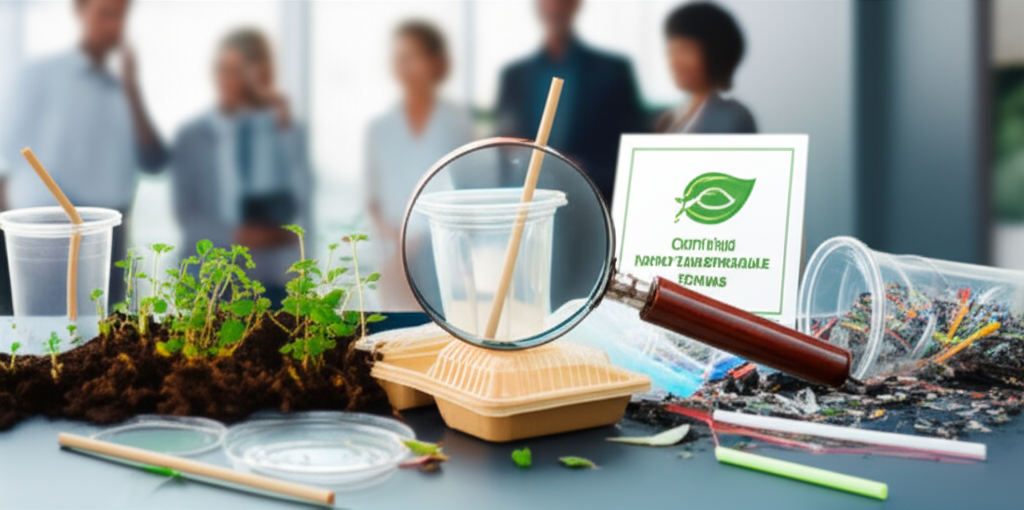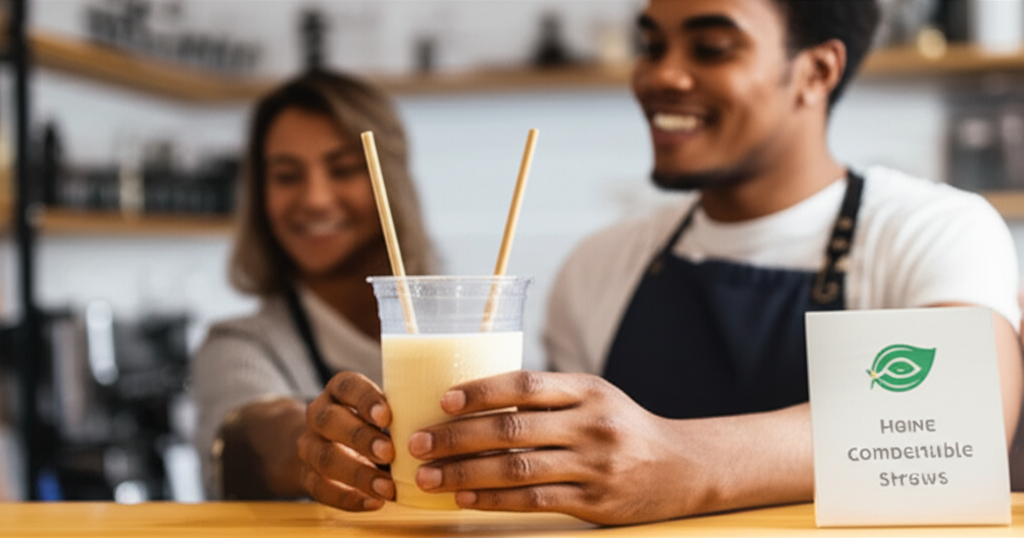The Imperative for True Sustainability: Navigating the Single-Use Plastic Dilemma
The global narrative around plastic pollution has shifted dramatically, moving from a distant environmental concern to a direct determinant of brand reputation and consumer trust. Businesses today face an unprecedented spotlight, as a significant majority of consumers—around 70%—are actively seeking out and supporting companies that demonstrate genuine commitment to environmentally friendly practices. This heightened awareness is compounded by a wave of increasing regulatory pressure and government bans on single-use plastics across key markets in both the US and Europe. Adapting quickly is no longer optional; it’s a business imperative.
However, navigating this landscape is fraught with challenges. The market is saturated with “compostable” claims, often leading to widespread confusion and skepticism. Terms like “compostable” or “biodegradable” are frequently misused, giving rise to “greenwashing” concerns that can erode consumer confidence. It’s crucial to understand the critical distinction: many products marketed as compostable require specific, high-temperature industrial composting facilities to break down effectively. If these products end up in landfills—which is often the case due to limited infrastructure—their environmental benefit is negated, leaving businesses vulnerable to accusations of misleading practices. Adding to this complexity is the alarming discovery of per- and polyfluoroalkyl substances (PFAS), or “forever chemicals,” in many paper straws and some plant-based alternatives, posing significant risks to brand integrity and consumer health.

Deconstructing “Compostable”: Understanding the Critical Distinctions
The limitations of industrial composting facilities mean that many seemingly eco-friendly products still contribute to landfill waste. This highlights the urgent need for solutions that integrate seamlessly into existing disposal habits, specifically home composting. Enter the new generation of truly home compostable materials like Polyhydroxyalkanoates (PHA), often derived from canola oil, and sugarcane bagasse. These innovative materials are engineered to break down naturally in typical backyard compost environments, or even in soil and marine conditions, within a much shorter timeframe, turning into organic matter without leaving harmful residues. This represents a monumental leap towards genuine circularity.
The market is unequivocally responding to this shift. The broader eco-friendly straw market, encompassing truly home compostable options, was valued at an impressive USD 12.3 billion in 2025 and is projected to nearly double to USD 25.1 billion by 2035. This robust growth is fueled by a confluence of factors: increasingly stringent legislation, a rising tide of consumer environmental consciousness, and the proactive adoption by major players in the foodservice and hospitality sectors, such as Starbucks and McDonald’s. These industry giants are setting a precedent, signaling a broader movement away from conventional plastics. Strategic investments in organic packaging materials and advanced manufacturing techniques, including AI-driven processes, are not just enhancing product performance but also shaping a highly competitive and innovative landscape. Discover more about sustainable solutions for your business at momoio.com/sustainability-solutions.

Unlocking Authentic Sustainability: The Power of Certified Home Compostable Straws
Embracing certified home compostable straws offers more than just environmental compliance; it provides tangible operational and reputational benefits. Businesses can significantly reduce their waste streams and simplify disposal processes for consumers, enhancing overall efficiency. Adopting certified home compostable options directly bolsters corporate social responsibility (CSR) initiatives, projecting an image of genuine environmental stewardship that resonates deeply with modern consumers. Furthermore, these solutions proactively help businesses comply with evolving environmental regulations, mitigating future penalties and positioning them as leaders in responsible commerce.
To make an informed decision, consider how truly sustainable straw alternatives stack up:
Comparison Table: Sustainable Straw Alternatives
| Feature/Factor | Traditional Plastic | Paper (Early Gen/Uncertified) | Industrially Compostable (PLA) | Certified Home Compostable (PHA/Sugarcane Bagasse) |
|---|---|---|---|---|
| Decomposition Environment | Hundreds of years, landfill | Variable, often landfill | Industrial facility required | Home compost, marine, soil |
| PFAS Risk | No (but plastic pollution) | High risk in many | Low/None | No PFAS (key benefit) |
| User Experience (Durability) | High | Low (prone to sogginess) | Moderate | High (mimics plastic feel, durable) |
| Environmental Impact | High pollution, microplastics | Variable (pollution if not composted) | Depends on infrastructure availability | Low (breaks down to natural elements) |
| Certifications | N/A | Limited/Misleading | BPI (industrial only) | BPI, TÜV AUSTRIA OK compost HOME |

Beyond compliance, the switch to certified home compostable straws can drive significant return on investment. Quantifiable cost savings can be realized through improved waste management and reduced landfill fees in the long term. The global compostable straws market, specifically, is projected to reach USD 3.8 billion by 2035, growing at a robust 7.1% CAGR from USD 1.9 billion in 2025. This indicates a robust and growing investment opportunity. By proactively adopting these solutions, businesses gain a crucial competitive differentiator, attracting the rapidly expanding segment of environmentally conscious customers. Explore our range of certified home compostable straws at momoio.com/home-compostable-straws. For more on certifications, see BPI World and TÜV AUSTRIA. Dive deeper into market trends with insights from Future Market Insights.
Future-Proof Your Business with True Home Compostable Solutions
The urgency for businesses to adopt genuinely sustainable single-use solutions to meet escalating consumer demand and evolving regulatory imperatives cannot be overstated. Certified home compostable straws offer a unique and compelling advantage, enabling true circularity and significantly enhancing brand reputation in a competitive marketplace. By opting for solutions that truly break down in everyday environments, you’re not just avoiding plastic; you’re investing in a future where convenience and environmental responsibility go hand-in-hand. This strategic move ensures your business is not just compliant, but positioned as a forward-thinking leader committed to a greener tomorrow.
Ready to transform your sustainability efforts and unlock a competitive edge? Discover how certified home compostable straws can revolutionize your operations and appeal to today’s eco-conscious consumer. Request a consultation with our experts to assess your specific needs and receive a sample kit tailored for your operations. Partner with us to build a more sustainable future for your business and the planet. Reach out for a comprehensive assessment at momoio.com/consulting-services.






